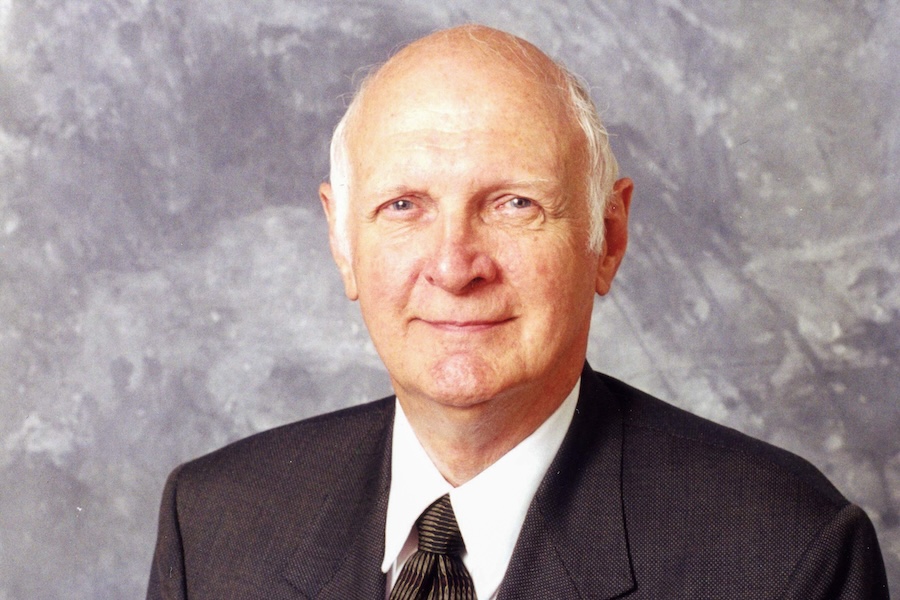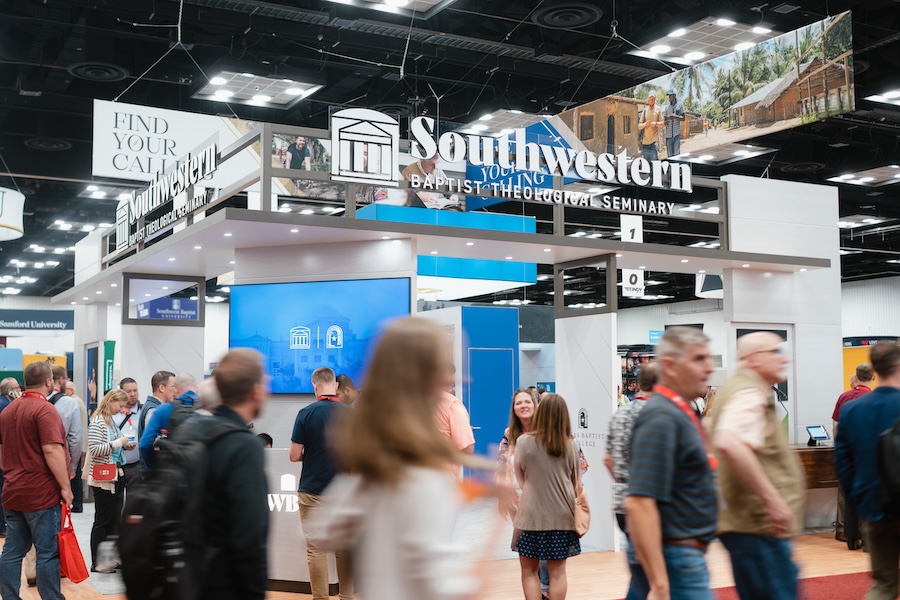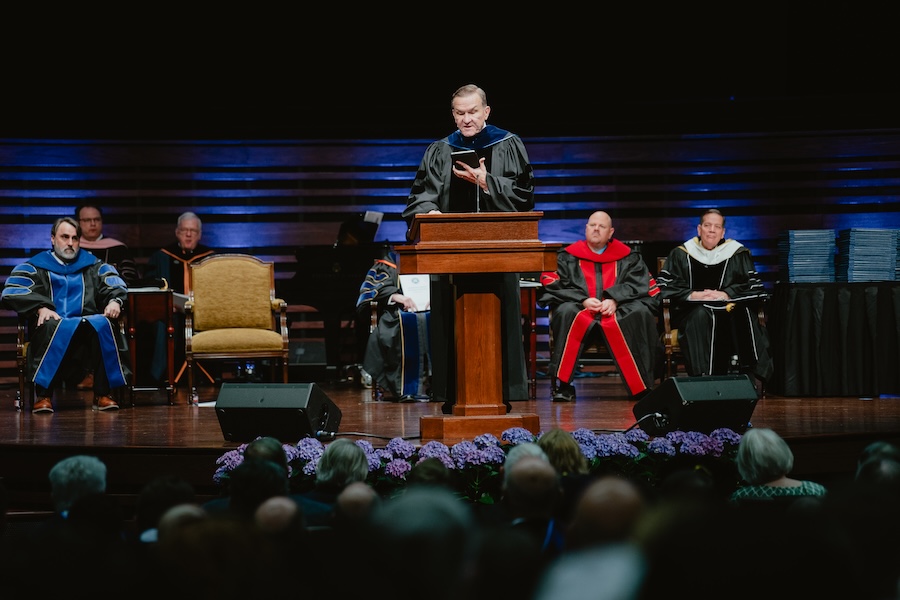Trusting God at the crossroads: Lilly Park finds her ministry in teaching
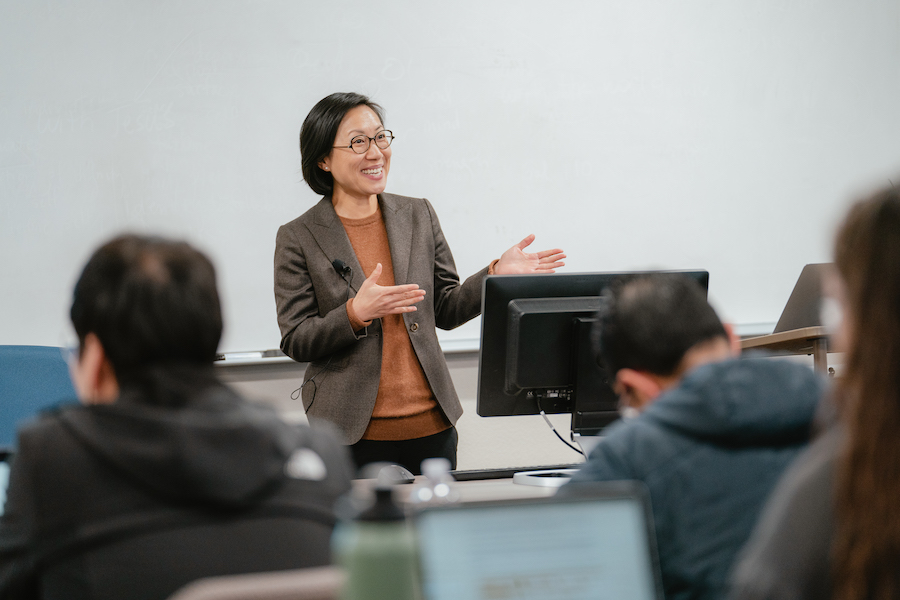
Editor’s note: This article originally appeared in the Spring 2024 issue of Southwestern News.
Lilly Park has come to many crossroads in her life. At each one, she’s turned to her “go to” Bible passage, Proverbs 16, “because it says the answer of the tongue is from the Lord,” she notes. “And that’s what I think about, is that the Lord will answer in His way, in His timing, and I don’t need to worry, but trust Him.”
Park, associate professor of biblical counseling in the Jack D. Terry School of Educational Ministries at Southwestern Baptist Theological Seminary, sees the Lord’s hand in every move she has made and is “just truly grateful to be able to invest in students and teach and meet with students.”
Park grew up in Maryland after her parents immigrated from South Korea when she was two years old. She says her parents took her to church as she was growing up, and when they moved to a new city, her mother took Park and her sister to Lighthouse Community Church, a now disbanded church plant of the largest church in the city of Columbia, Maryland.
“And I remember the pastor asking us to please come back the following Sunday because their new youth pastor would be here from California,” she says. “And I don’t know why, but that just is very distinct, that he really wanted us to visit again. And we did, and I’m so glad we did because it was through his ministry that I accepted Jesus as my Savior and wasn’t just going to church.”
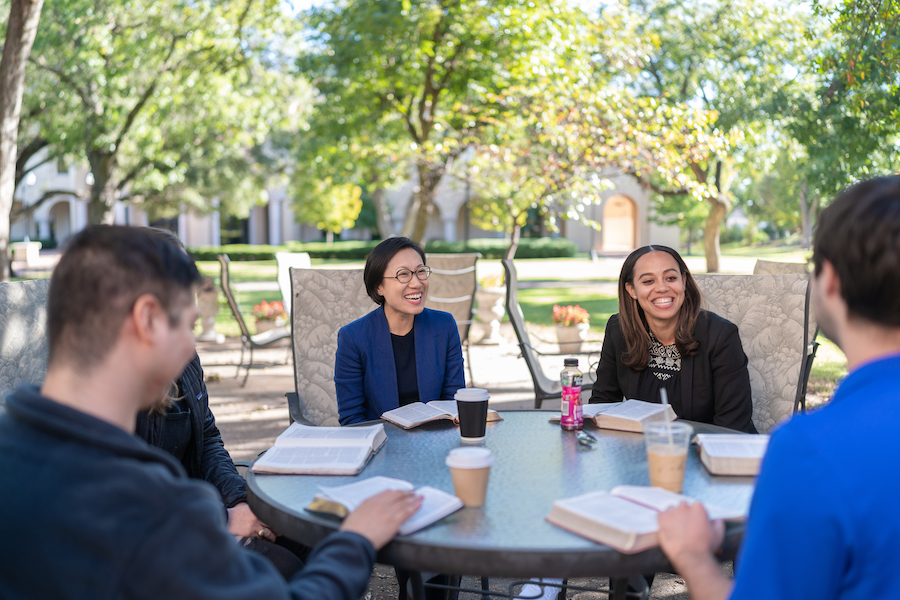
Lilly Park, associate professor of biblical counseling, has taught at Southwestern Seminary 2020. Park says that while the seminary does not replace the church, she views her role as a professor as serving the church and the seminary as serving the church.
Park accepted Christ at age 15 and, along with another high school student, was discipled by the pastor’s wife once a week. Park calls it “one of the sweetest times in my life. She would just teach us what it means to be a Christian woman, and we would go through Christian books together. And I learned so much from her life of faith and as a mother and a wife.”
Her pastor would host student leaders in the couple’s home on Sunday afternoons, teaching them what it means to be a Christian and how to lead small groups, Park says, adding she “really didn’t know what I was doing, but I just loved everything about them and the youth ministry and I wanted to participate as much as I could.”
Park says her youth pastor taught them not to believe his teachings just because he was the pastor, but to compare everything to God’s Word.
“Little did I know how much it would really play a role in my life decades later,” she says with a laugh, noting that she tells her students not to believe her teaching just because she’s the teacher, but to “compare everything to God’s Word.”
Park was very involved in her youth group in high school and continued that involvement in college, where she served on her college ministry team. When she was asked to lead a women’s small group, she says, “I felt like that was the highest honor, to be honest, because I just thought of my pastor’s wife who discipled me and she made such an impact on my life, and to do something like that with other college students was just so meaningful and such an honor.”
Park studied business at the University of Maryland, majoring in marketing and human resource management. After graduation, she began working in one of the largest management consulting firms in the country, but things changed after the 9/11 terrorist attacks. Park lost two colleagues at the Pentagon.
“And in my early 20s, I had, like, a midlife crisis,” Park says. “I had an awareness that life is short.”
Though she enjoyed her job, Park began to question whether that was what she wanted to do with her life.
She kept thinking, “‘If I could do anything, what would it be?’ And I thought I should take my own advice with college students, the women I was discipling. I would tell them, ‘What is your passion?’ And for me, it was very easy: it was ministry.”
Park wasn’t sure what ministry would look like for a woman, though, because she’d never known any woman who went to seminary. A short time later, a new couple came to her church. The wife had graduated from seminary and answered all of her questions, Park says, adding that the woman was “very honest” about what seminary life is like for a woman.
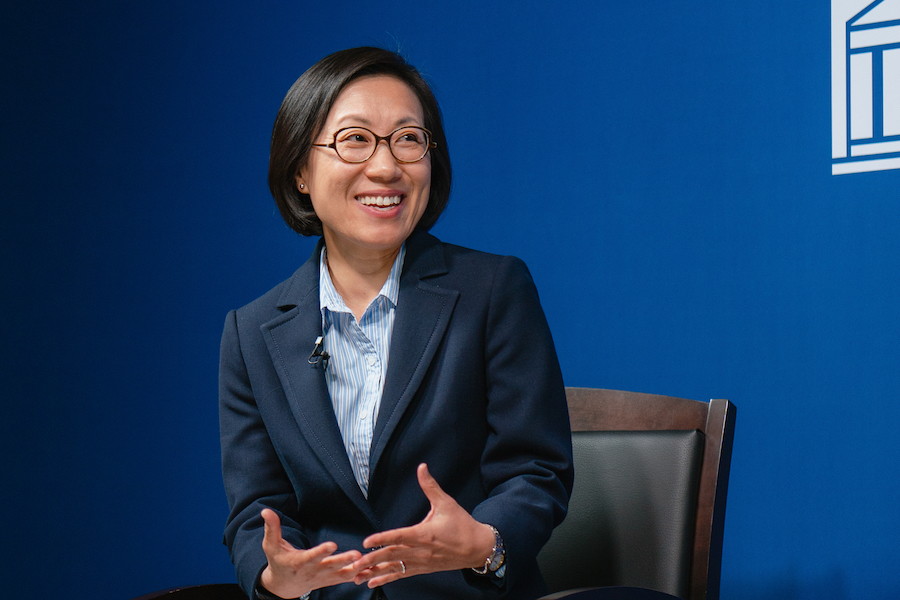
Park stays active in her local church, Trinity River Baptist Church in Fort Worth, where she serves in the children’s ministry and counsels a small group of women.
Park says she first heard about biblical counseling from the pastor’s wife at the church she was attending. The woman arranged for Park to talk with an acquaintance who worked in the biblical counseling department of The Master’s College [now The Master’s University], a private, nondenominational college in California.
The conversation piqued her interest in biblical counseling, Park says, adding that she quit her job and moved to California to attend The Master’s College. When people asked her what she was going to do for work, she told them she didn’t know.
“I just had this deep sense of, this deep desire and confidence in the Lord about it, that He will provide,” she recalls.
Park says she loved her program. While she’d had good, expository teaching in the church where she had been saved, she says, it wasn’t until studying in this program that “Hebrews 4:12 really stood out that the Word is living and active.” The verse also was “so convicting about my sins that I don’t take seriously. And it was convicting but exciting, because I never saw Scripture in that way – so relevant for everyday life.”
Shortly before graduation, Park began working as assistant to the pastoral care pastor at Grace Community Church in Sun Valley, California. The fulltime position with benefits would allow her to use what she’d learned in her Master of Arts in biblical counseling program, and while she learned a lot about church ministry, she says, “there was a desire to learn more of God’s Word. And I didn’t really tell many people about it, but somehow, one of the professors heard about it.”
That professor, Stuart Scott, was moving to Louisville, Kentucky, to start a biblical counseling program at Southern Baptist Theological Seminary and asked Park if she would consider studying there and assisting him. She studied for her Master of Divinity in Christian ministry at Southern Seminary and worked as a teaching assistant for most of her time there. She also worked as the assistant for the counseling center.
As her studies were coming to an end, a couple of professors approached her about the Doctor of Philosophy program.
“And I just thought, ‘Oh, that’s okay. I’m done with school now,’” she says with a laugh. As graduation drew closer, however, “the Lord changed my heart to be more open about it.”
Park earned her Ph.D. at Southern Seminary and says she’s grateful for everything she learned and for her mentors there. After graduation, she began teaching at a Bible college in Indiana. She briefly returned to Southern Seminary before being contacted about coming to Southwestern Baptist Theological Seminary.
“At this point in my life, I’m not wanting to just pursue another job and just keep moving,” she recalls. However, after praying about it and talking with “a lot of godly people,” she reconsidered. Park says it was a choice between Southwestern and another school, and “the Lord seemed to confirm Southwestern Seminary,” she says. Park began teaching at Southwestern in 2020.
Park says she sees teaching as her ministry but adds it’s more than that. “It’s teaching, but it’s equipping people for wherever the Lord will place them,” she says. “But also it is walking alongside people who are carrying different burdens.”
Park believes part of her role as a professor is to serve the church and sees the seminary as serving the church. However, she adds, “seminary doesn’t replace the church.” As a professor, she says, “I am here to teach the biblical, theological, and practical knowledge for ministry, but I always want students to be faithful members of the church.”
Park says her classes include a lot of coverage of Scripture and theology, “because I want students to know that our confidence is in Scripture and theology, but the catch is, I want you to know how to relate it to contemporary issues.”
Matthew McCraney (’23), who graduated in December with a Ph.D. in biblical counseling, says Park is an “amazing teacher” who presents different perspectives but always brings the discussion “back to the Word of God and how we apply that as Christians.”
Park also served as the dissertation supervisor for McCraney, an Army chaplain who completed his Ph.D. while serving full-time active duty. McCraney says Park “is just an incredibly intelligent yet humble individual. She has that perfect balance of competence and humility, and pushes you to do the best academic work that you can.” He adds that Park “has been a great blessing in my academic work. She has helped me get published. She is just a wonderful resource.”
Jerome Jones (’23), who received a Master of Divinity with a pastoral ministry concentration in December, took several of Park’s classes for his electives and says it was “a real joy getting to know her.”
Jones says you can tell that Park “really loves the students, but more importantly, I think she doesn’t miss out on her opportunity to disciple right then and there while she’s also instructing.”
Park also reaches out to students beyond the classroom by leading a Faculty Mentorship Group. She participated in the same type of program when she was a seminary student and says it was meaningful to get to share burdens with other classmates and know she wasn’t the only one going through some of the challenges students face. Park says she wants “to play a small role in replicating something like that with this group.”
In her time away from the seminary, Park attends Trinity River Baptist Church in Fort Worth, where she serves in the children’s ministry and counsels a small group of women.
She also enjoys running.
“It pushes me to be disciplined, and it helps me to enjoy God’s creation,” she says.
She’s found a running partner in colleague Ashley Allen (’03, ’09), assistant professor of women’s ministries. They even ran in the Dallas Marathon, beginning with the half marathon in 2022. That race garnered them more attention than they intended.
Park says she and Allen were unaware that the Dallas Marathon had used a photo of them taken during the half marathon to promote the race on social media, on the marathon’s website, and in advertising.
Park says she and Allen went to a running store to buy something after a run, “and we saw our face on the wall outside,” she exclaims. When they went to the expo to pick up their packets for the December 2023 full marathon, she says, their photo was on a banner.
Park says the attention was exciting, but they didn’t know how widespread it would be.
“So we’ve been joking they should’ve paid us commission,” she says with a laugh.
Park and Allen did complete the full marathon in December.
“By God’s grace, we finished,” Park says with a laugh. “There’s no way to avoid it; you’re just going to be in a lot of pain the next day.”
The two continue to run together regularly, and Park says she’s “thankful just to have a colleague and a friend who encourages me spiritually, and that we can exercise together but it’s also meaningful spiritually.”
Park says they often pray together after their runs.
“We pray for each other, our families,” she says. “We pray for our students, and we pray for the seminary. We pray for leaders.”
Looking back over the journey that brought her to Southwestern, Park says the Lord sustained her at each crossroads – through moving to a new state, a new school, and in searching for a new church.
“I’m incredibly grateful to God for directing my path throughout my years,” she says.
Karen Garcia is a news writer for Southwestern News.
